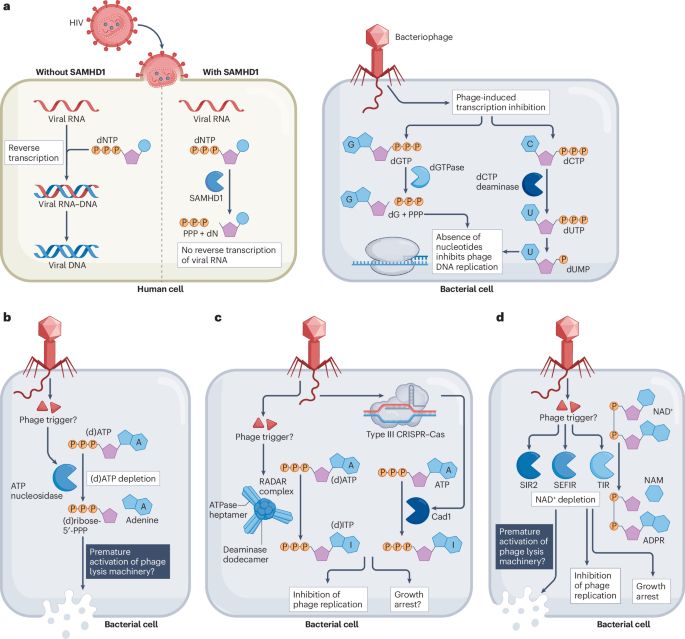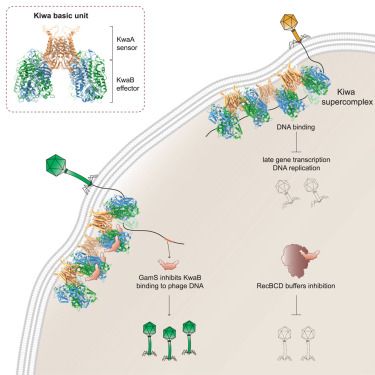Malcolm White
@mfwhite2.bsky.social
1.1K followers
170 following
87 posts
Molecular microbiologist at the University of St Andrews, Scotland. My scientific interests include: CRISPR, antiviral defence, cyclic nucleotide signalling, archaea, nucleases.
Posts
Media
Videos
Starter Packs
Reposted by Malcolm White
Reposted by Malcolm White
Reposted by Malcolm White
Reposted by Malcolm White
Malcolm White
@mfwhite2.bsky.social
· Sep 5
Malcolm White
@mfwhite2.bsky.social
· Sep 2
Sorek Lab
@soreklab.bsky.social
· Sep 2

Synthetically designed anti-defense proteins overcome barriers to bacterial transformation and phage infection
Bacterial defense systems present considerable barriers to both phage infection and plasmid transformation. These systems target mobile genetic elements, limiting the efficacy of bacteriophage-based t...
www.biorxiv.org
Reposted by Malcolm White
Emmanuele Severi
@emmseveri.bsky.social
· Aug 31

Gabija restricts phages that antagonize a conserved host DNA repair complex
Anti-bacteriophage systems like restriction-modification and CRISPR-Cas have DNA substrate specificity mechanisms that enable identification of invaders. How Gabija, a highly prevalent nuclease-helica...
www.biorxiv.org
Reposted by Malcolm White
Rory White
@rorywh.bsky.social
· Aug 21

Meta banned the Epoch Times from advertising. Then it accepted $300k in new ads targeting Canadians
In the past 12 months, The Epoch Times has spent over $300,000 on Facebook and Instagram ads promoting political surveys to collect the emails of Canadians using a series of anonymous pages.
www.nationalobserver.com
Reposted by Malcolm White
Malcolm White
@mfwhite2.bsky.social
· Aug 1
Malcolm White
@mfwhite2.bsky.social
· Aug 1
Malcolm White
@mfwhite2.bsky.social
· Jul 30
Dina Hochhauser
@dinahoch.bsky.social
· Jul 29

Manipulation of the nucleotide pool in human, bacterial and plant immunity - Nature Reviews Immunology
Modification of the nucleotide pool is emerging as key to innate immunity in animals, plants and bacteria. This Review explains how immune pathways conserved from bacteria to humans manipulate the nuc...
www.nature.com
Reposted by Malcolm White
Franklin Nobrega
@fnobrega.bsky.social
· Jul 28

Kiwa is a membrane-embedded defense supercomplex activated at phage attachment sites
Zhang, Todeschini, and Wu et al. show that the bacterial defense system Kiwa senses
phage attachment at the membrane and assembles a transmembrane complex that halts
infection by blocking phage DNA re...
www.cell.com
Reposted by Malcolm White













